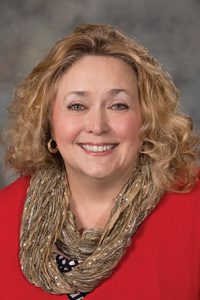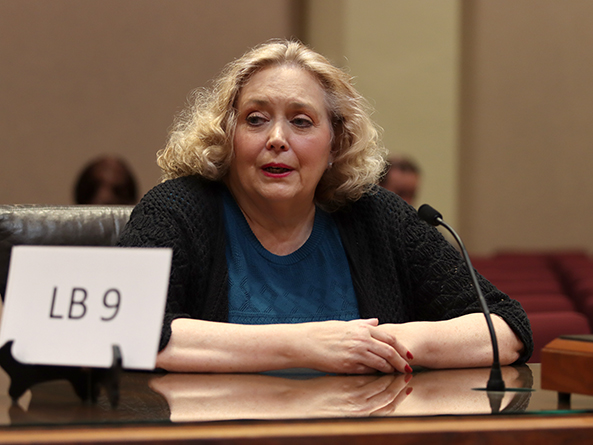Electioneering communication reporting requirement considered
Additional reporting for certain types of political expenditures would be required under a bill considered March 23 by the Government, Military and Veterans Affairs Committee.

Under LB9, introduced by Sen. Carol Blood of Bellevue, an individual who makes an independent expenditure for an electioneering communication of more than $1,000 would be required to file a report with the Nebraska Accountability and Disclosure Commission within two days. Failure to do so would be a Class IV misdemeanor and would incur a fine of $25 per day, not to exceed $750.
The bill defines an electioneering communication as one that clearly identifies a political candidate or ballot question, is directed to the electorate and is released within 30 days of an election involving the candidates or ballot measures mentioned.
Blood said gaps in current election law enable individuals and groups to secretly fund communications by claiming they are educational — a practice that is legal as long as the communication doesn’t ask a voter to vote for or against a candidate or a ballot question. She said both parties engage in the practice and will continue to do so unless the law requires greater transparency.
“Voters have the right to know who funds political campaigns in Nebraska,” Blood said. “This is a disclosure law — it creates transparency, it doesn’t create winners and losers or limit what people can spend.”
Sheri St. Clair testified in support of the bill on behalf of the League of Women Voters of Nebraska. She cited a recent example of state senators being targeted by a Virginia group through electioneering communications in opposition to a proposal to extend term limits.
“Most of these communications are meant to elicit strong emotional reactions rather than presenting nonpartisan information on issues that affect our state,” St. Clair said. “Nebraskans have a right to know who is funding these communications and activities to independently determine why these groups are influencing particular initiatives.”
Frank Daley, executive director of the Nebraska Accountability and Disclosure Commission, also testified in support of LB9, which he said would “fill an important gap” in the state’s campaign finance disclosure law.
Context matters when voters are trying to evaluate electioneering communications, Daley said, and knowing who is funding them through reporting requirements would assist in that evaluation process.
No one testified in opposition and the committee took no immediate action on the bill.


